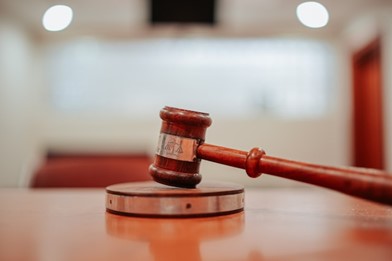The nature of assets has evolved beyond traditional property and financial holdings, requiring the expertise of an estate lawyer to navigate these changes. Digital assets—such as cryptocurrencies, online accounts, social media profiles, and digital files—now make up a significant portion of many individuals’ assets. As these properties grow in importance, the need for clear guidelines on how they are addressed becomes crucial. Without proper legal direction, disputes among heirs and beneficiaries can arise, often leading to costly and time-consuming litigation.
Understanding Digital Assets
Digital assets encompass a wide range of items that exist in digital form. These can include:
- Cryptocurrencies: Digital currencies such as Bitcoin, Ethereum, and others that can be bought, sold, or traded.
- Online Accounts: Social media accounts (like Facebook, Instagram, and Twitter), email accounts, and online subscription services (like Netflix or Spotify).
- Digital Files: Photos, videos, music, and documents stored on personal devices or in the cloud.
- Web Domains and Online Businesses: Domains registered for personal or business use, as well as e-commerce businesses.
Each of these assets presents unique challenges when it comes to inheritance, particularly due to privacy concerns, security issues, and the differing policies of service providers.
The Importance of Including Digital Assets in the Estate
When individuals fail to address digital assets in their estate arrangement, it can lead to confusion and disputes among heirs. Many people may not realize the value of their digital assets or may not know how to access them. If an asset is vague or lacks specific instructions, it can result in lengthy litigation as heirs fight over ownership or access rights.
To avoid these potential disputes, it is crucial to include digital assets explicitly in your legal documents. This can involve creating a digital asset inventory that lists all digital assets, their values, and access information. Additionally, it is advisable to designate a digital executor—someone responsible for managing and distributing these assets after the owner’s death.
Challenges
Privacy and Access Issues: Many digital assets are protected by privacy laws or terms of service agreements that can make it difficult for heirs to access them. For example, social media platforms may have strict policies on who can access a deceased person’s account, often requiring proof of death and, in some cases, a court order.
Lack of Clear Legislation: The legal landscape regarding digital assets is still evolving. Many jurisdictions lack specific laws governing the transfer of digital assets upon death. This uncertainty can be complicated and lead to disputes over ownership and access.
Valuation Difficulties: Determining the value of digital assets, particularly cryptocurrencies and online businesses, can be challenging. Fluctuating market values and the lack of clear valuation standards may result in disagreements among beneficiaries regarding how much these assets are worth.
Inconsistent Policies Among Service Providers: Each online service provider has its policies regarding account ownership and transfer after death. While some may allow for a straightforward transfer process, others may require a lengthy legal process or may not permit transfers at all. This inconsistency can create confusion and disputes among heirs.
Potential for Litigation
When digital assets are not clearly addressed, the potential for litigation increases significantly. Common scenarios that can lead to disputes include:
- Will Contests: If a digital asset is mentioned in a will but is poorly defined or lacks specific instructions, heirs may contest the will, arguing over the deceased’s true intentions.
- Access Disputes: If multiple heirs believe they should have access to a digital asset, such as a social media account or an email account, this can lead to disputes that may require legal intervention.
- Valuation Conflicts: When the value of digital assets is disputed, beneficiaries may take legal action to resolve disagreements over how assets should be divided or sold.
- Fiduciary Duties: If a digital executor is designated but fails to carry out their duties properly, they may face legal challenges from beneficiaries who feel that their interests were not adequately represented.
Strategies for Avoiding Litigation
To minimize the risk of litigation surrounding digital assets, individuals should take proactive steps:
Document all digital assets, including cryptocurrencies, online accounts, and files. Include details on how to access each asset, including passwords, usernames, and any relevant legal documents.
Designate someone who is tech-savvy and trustworthy to manage your digital assets after your death. Ensure that this individual understands your wishes and has access to the necessary information.
Clearly outline your wishes regarding the distribution of digital assets in your will or trust. Specify how you want these assets to be handled and any particular instructions for each.
As laws surrounding digital assets evolve, stay informed about changes in legislation that may affect your estate plan. Lastly, work with an attorney who understands the complexities of digital assets. They can help create a comprehensive proposal that addresses these unique issues.
Conclusion
As digital assets continue to play an increasingly vital role in our lives, addressing them in a will or living trust becomes essential. Failing to do so can lead to significant disputes among heirs and costly litigation. By understanding the complexities of digital assets and taking proactive steps, individuals can help ensure a smoother transition of their assets, reducing the potential for conflict and preserving their legacy for future generations.


